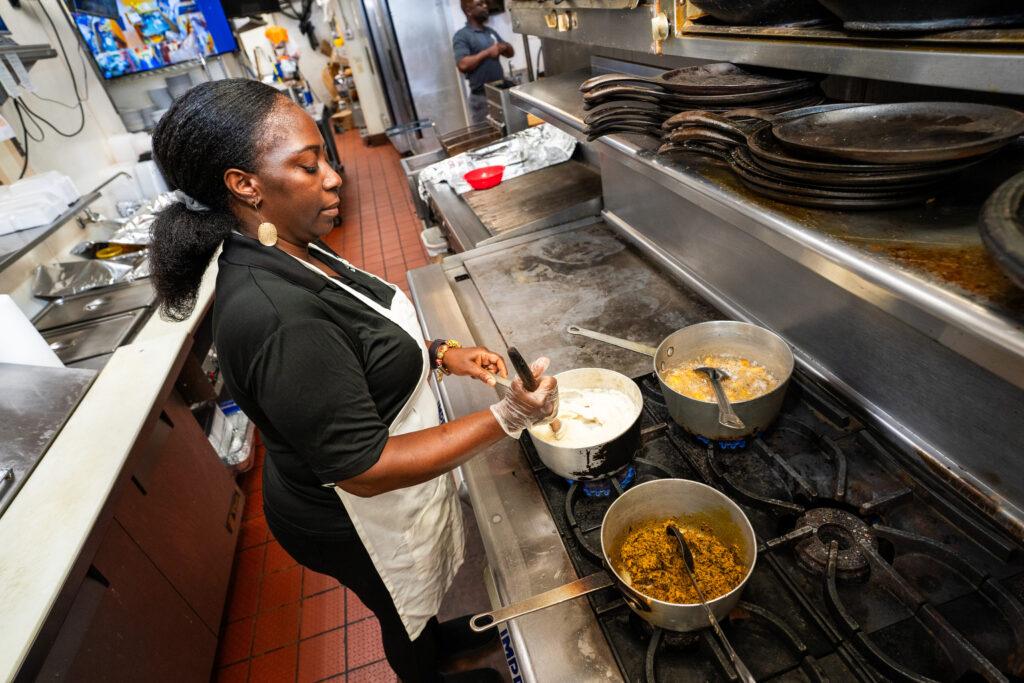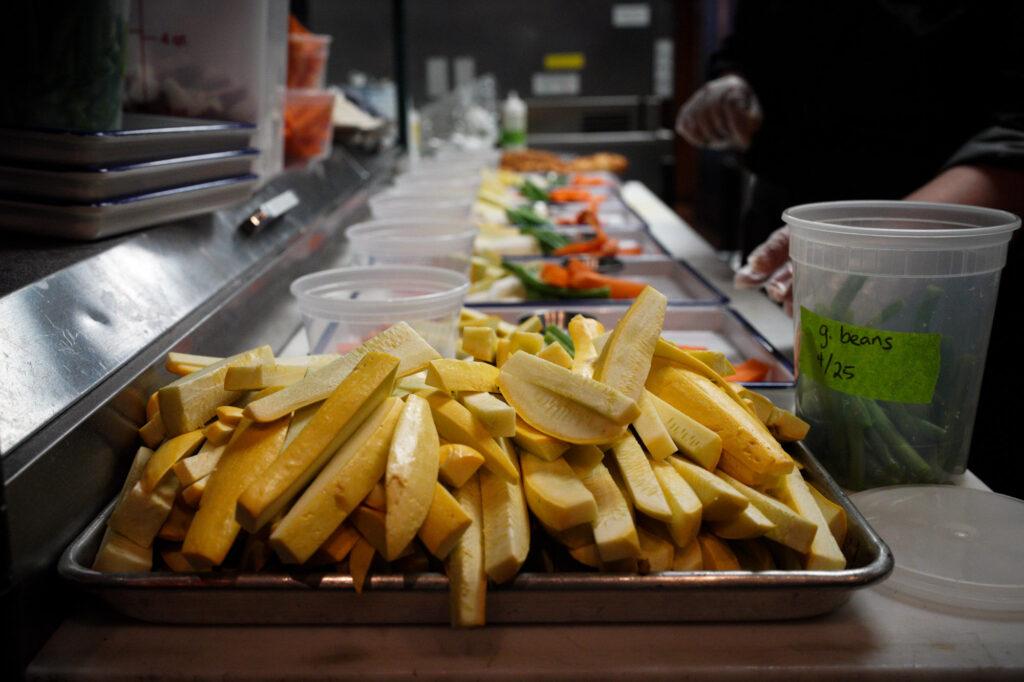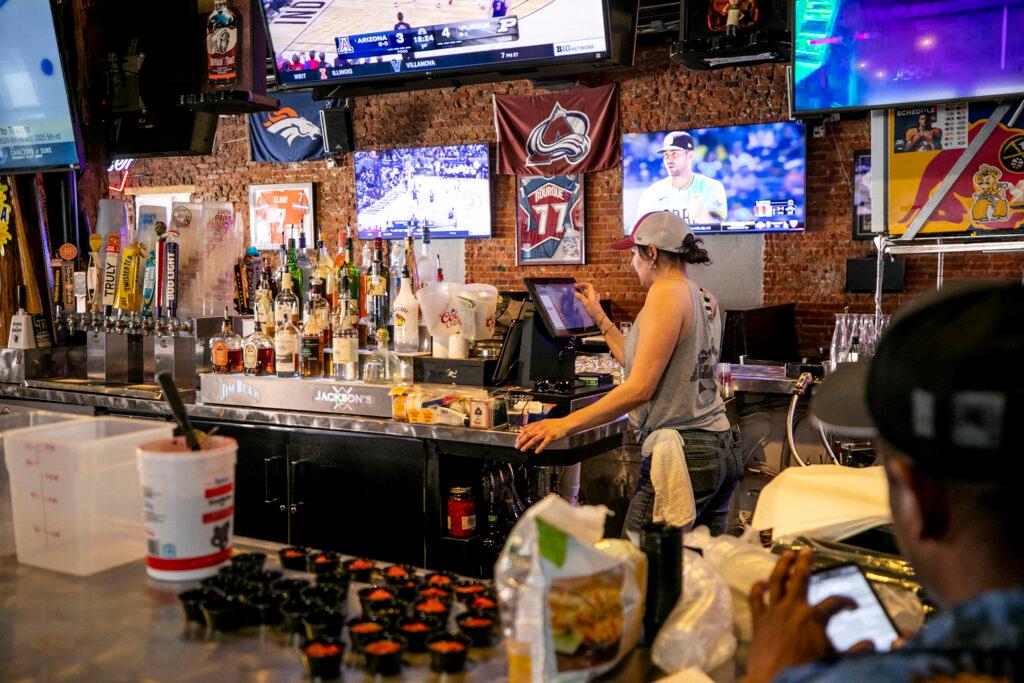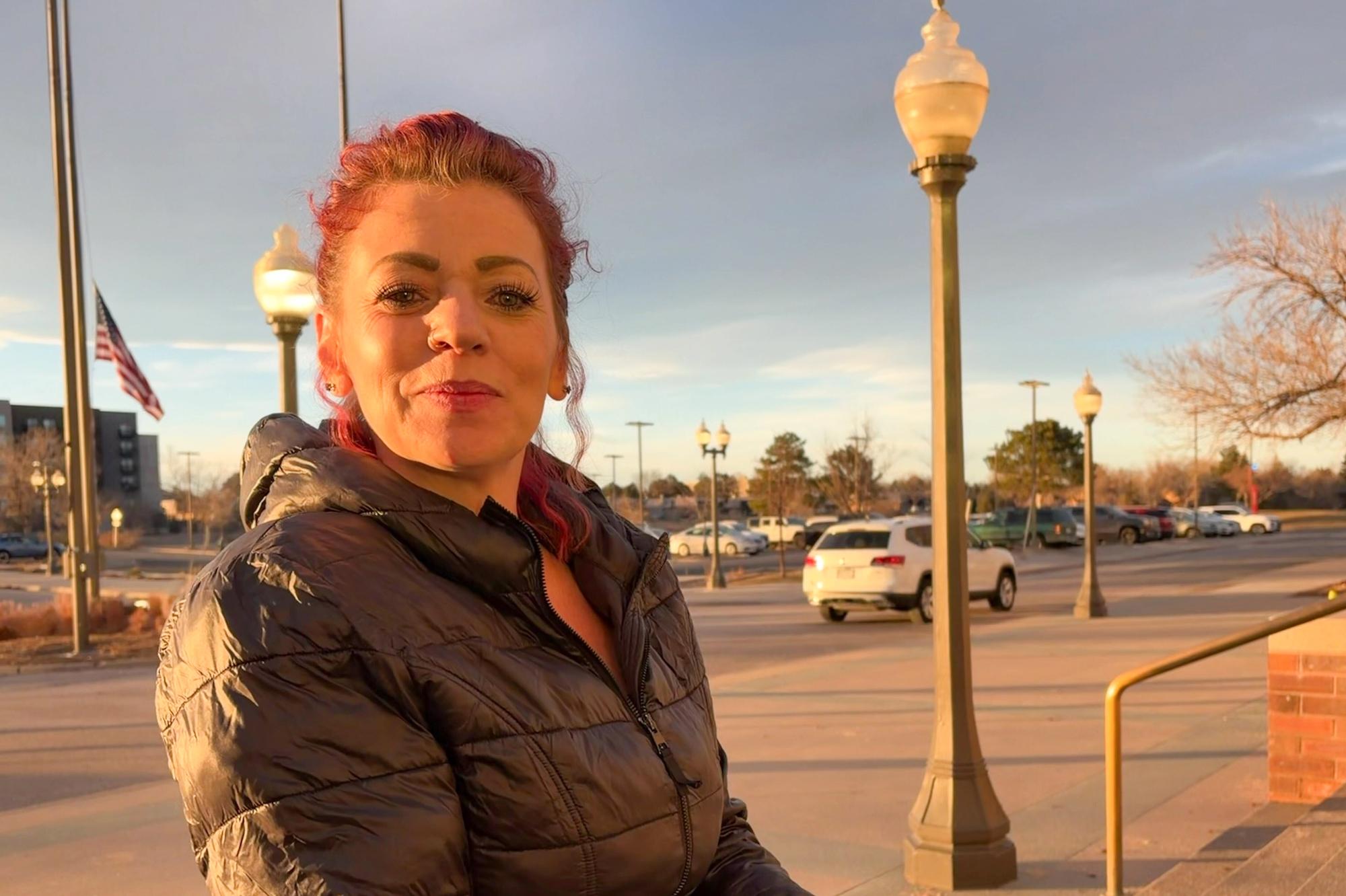
Updated on Friday, Feb. 21, 2025 at 5:30 p.m.
A new bill proposing changes to tipped workers’ wages has split open divides in the state’s restaurant industry and within the local government in Denver.
House Bill 1208 had its first hearing Thursday at the state legislature, appearing before the House Business Affairs and Labor Committee. Supporters describe the proposal as a remedy to the Local Government Minimum Wage bill that passed in 2019.
It allowed cities to establish a minimum wage based on their cost of living, something bill sponsors say is now harming independent restaurants. But critics who spoke at the hearing, including labor advocates and some restaurant owners, called the new bill a misguided effort that would have a significant financial toll on workers.
When the minimum wage bill originally passed, Coloradans were feeling the impact of a rapid influx of new residents, which drove up housing costs statewide and made it difficult for people to live where they worked.
State Sen. Jessie Danielson, who sponsored the 2019 bill, said it was initially lauded for its potential to make life more affordable.
“Hardworking Coloradans all across the state were saying, ‘We know what's best for our local communities, and if it suits us, we want to have the ability to raise the minimum wage.’ It was in no way, shape or form a requirement. It was just removing a barrier,” Danielson said.
Denver was the first city to jump on board, boosting its minimum wage from $11.01 to $12.85 in 2020. The city has increased it by more than a dollar each year since.
However, the 2019 law did not allow cities to also adjust the tip offset rate of $3.02, which is set in the state constitution.
Today, Denver's overall minimum wage is $18.81, but the tip offset allows restaurants to pay servers less than that in base wages. As it stands, Denver restaurants must always pay $15.79 per hour to tipped employees, no matter how much they're getting in tips. The employer also must guarantee that the employee is earning the regular minimum wage when combining base wages and tips. So, if tips are bad, the employer might have to kick in more money to reach $18.81.
Sonia Riggs, CEO of Colorado Restaurant Association, said the current offset amount has resulted in an increase in restaurant closures, creating an inescapable divide in pay between front of house workers, like servers, and back of house workers, like cooks.

“I hear it every single day, especially in Denver. [The tip offset] forces [employers] to cut tipped workers’ hours, eliminate positions like bussers and hosts, and, eventually, go out of business,” she said. The CRA, some independent restaurants and several other organizations and tourism groups including Visit Denver, are in support of HB-1208.
Patrick Walton with Visit Denver and the Convention and Visitors Bureau said the tipped credit is causing restaurants to close, putting the city’s tourism appeal at risk.
“HB 1208 offers a pragmatic solution and will not only aid the restaurant industry but also bolster Colorado's tourism sector,” he said.
The bill, which passed its first hearing under the Business Affairs and Labor committee, would create larger tip offsets depending on a city’s individual minimum wage.
Under the bill, the new offset in Boulder would be $3.78, in Edgewater – $4.73 and in Unincorporated Boulder County, – $4.78. Denver’s new tip offset would be the largest by far at $7.02. Those adjustments would put tipped workers everywhere back on the statewide wage of $11.79 per hour plus whatever they earn in tips.
But alarm bells were raised by the Denver Auditor’s Office before the bill reached the committee.
Denver Auditor Tim O’Brien sent a letter to bill sponsors on Feb. 7, saying he was deeply concerned about how the reduction in wages would impact workers. His analysis, based on numbers from the Bureau of Labor Statistics, showed the bill would reduce the average weekly earnings of tipped employees by $160, monthly earnings by $640 and annual wages by $8,320.
“This is money these people need for food, rent, utilities, transportation, daycare, doctor’s visits, diapers, formula, and all the other necessities of modern life,” O’Brian wrote.
A fiscal note on the bill published Feb. 18 by nonpartisan analyst Louis Pino said much of the same. He found that if the bill were to pass, tipped workers in Denver and Boulder would see an average reduction in wages paid by employers of $3.19 per hour.
Pino’s analysis also found that the bill, as currently written, is expected to decrease the state’s General Fund revenue by up to $6.8 million in FY 2025-26, $6.9 million in FY 2026-27 and by similar amounts in future years.
“[The tip offset] was a highly negotiated piece of the bill and now the industry is saying, ‘Nope, that's not good enough. We need to further slash the wages of our workers.’ I do not believe that is an acceptable solution to the problems that the industry is facing,” Danielson said. “We should not be in the business of punishing these hardworking servers all across the state. We should be standing with them and finding other solutions that don't directly harm them.”
Denver’s local government is divided
But in Denver – where the impact would be felt the most – that perspective is not held by all stakeholders. Notably, Denver Mayor Mike Johnston’s Office is in favor of the bill, while several members of City Council are opposed.
At Thursday night’s preliminary hearing, DominiK Moreno, Johnston’s deputy chief of staff and a sponsor of the 2019 wage bill, spoke on behalf of the Mayor’s Office.
“[The 2019 bill] codified the tipped credit at $3.02, not just in state statute, but it also codified it in the Constitution via ballot measure back in 2006,” Moreno said.
He encouraged the Business Affairs and Labor committee to consider using HB-1208 to give all local governments the autonomy to change their tipped credit, just like they can change their minimum wage.
Moreno went on to say that he remembered the day he and other legislators chose to freeze the tipped credit, knowing that one day soon, inflation would impact restaurants. They did not foresee that a year later, the COVID-19 pandemic would lead to mass service industry layoffs and restaurant closures.
“I think everyone understood that we were kicking the can down the road. The reality is that we left this issue unaddressed,” he said.
In her witness statement, however, Denver City Council member-at-large Sarah Parady argued against the bill, saying it would be an “overnight” pay cut to the city’s lowest paid workers. She argued that would further exacerbate the city’s already high cost of living.
“This is one of the most flawed pieces of legislation I've ever seen come through this building, and I don't say that lightly,” Parady said. “I am astounded and, as a local legislator, insulted by the idea that the state of Colorado would force its biggest and most expensive city to directly cut worker pay by thousands of dollars per year. What do you propose we should do about the wave of evictions and worker flight from Denver that would immediately follow?
“This bill is directly counter to its own stated goal because one of the first things that people do when their pay drops is stop going out to eat. Research from One Fair Wage shows that states with higher minimum wages experience fewer closures of hospitality businesses in downturns because workers are also consumers.”

Several restaurant owners testified both for and against the proposal, with some criticizing each other over their business practices.
“One of the challenges of any business in the service industry is balancing your finances and making sure that you are not overspending on the cost of goods, fixed cost and yes – wages,” said Sid Farber, co-owner of Moonshell Pizza. “That being said – there are plenty of restaurants and food businesses, both small and large like the one I work for and co-own, who are able to pay well above the minimum tip wage in Denver and still be a successful business. To be frank, if some restaurant owners are unable to compete in this environment and pay their workers a fair wage, then maybe they should consider finding another line of work and leave the service industry to competent owners who know how to balance their costs and break even.”
Meanwhile, restaurant owners in favor of the bill say it would help them pay their staff more equitably over time.
“I care deeply about my employees and I want to see all of them earn a living wage, but under current policy, we're championing the well-being of one group – tipped employees – over all others,” said Dolores Tronco, owner of The Greenwich in Denver’s Rhino neighborhood. “What about our kitchen crews who cook the food and wash the dishes? When a restaurant has to give raises to those making the most, owners can't increase wages for the workers who make the least. Our back of house earns an average of 40 to 50 percent less than their tipped counterparts. I owned a restaurant in New York City, too, and it's easier to do business there.”
So how did we get here?
The arguments over HB 1208 picked up after an article published by the Denver Post in January, using data from the Department of Excise and Licensing, said that the number of Denver restaurants had dropped by 22 percent over the last three years.
The Colorado Restaurant Association then began using that number to support their claims that the tip offset and its effect on labor costs is to blame for the loss of restaurants in Denver specifically.
But that 22 percent figure is one Eric Escudero at the Department of Excise and Licensing said cannot be taken at face value.
Escudero told CPR News that the percentage was based on the number of new restaurant licenses versus those that have expired over the years. While the math is technically accurate, the problem is that the city’s definition of a “restaurant” has changed.
Restaurant licenses for food trucks, temporary restaurants and standing restaurants – like you might find at Coors Field for example – are no longer counted, when in previous years they have been.

That understanding led Matthew Fritz-Mauer, who spoke as a proxy for Denver Auditor Tim O’Brien Thursday night, to reject the statistic altogether.
“Denver hasn't lost 22 percent of its restaurants. That claim is based on incomplete data from our Department of Excise and Licenses. And just yesterday, City Cast Denver quoted that department calling the restaurant industry's claims - on this point - baloney,” he said.
Caroline Nutter, a Legislative Coordinator for the Colorado Fiscal Institute, sat in on Thursday night’s hearing. She said that in this situation, more than one thing can be true at the same time: The restaurant industry is still struggling post pandemic, and the bill would cut wages for tipped workers and likely harm those who make the least.
“The important thing that we have to remember is that data is just data. It's just true, it just exists, and I think that unfortunately, it's easy to interpret data in lots of different ways,” she said.
Editor's note: This story has been corrected to clarify the minimum wage for tipped workers and what difference an employer must make up if tips don't meet that minimum.









